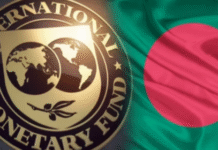Policymakers need to understand the diaspora and incentivise its involvement in the country’s development
Sylhet division in north-east Bangladesh, where around 95% of all British-Bengalis trace their origin to, should in theory be the wealthiest and healthiest part of country. The region receives around US $1bn in remittances every year from expatriate Bengalis in the UK alone.
However, wealth hasn’t translated to health in Sylhet. According to the Bangladesh Bureau of Statistics, Sylhet has worse literacy and school enrolment rates than all other regions, child malnutrition rates are well over the WHO emergency threshold of 15%, fertility rates are the highest in the country and expectant mothers are more likely to die during child birth in Sylhet than any other part of Bangladesh.
“While remittances play a significant role in Bangladesh’s development, most of it is transferred to individual households rather than to charity or community development,” ex-Bangladesh foreign minister Farooq Sobhan explains. “Amongst key concerns are issues of corruption and red tape, the political schism between the Awami League and the Bangladesh National Party, and resulting instability, insecurity and a feeling of not knowing how to help,” said Sobhan, who currently heads the Bangladesh Enterprise Institute, a research and advocacy organisation that focuses on the growth of private enterprise in Bangladesh.
How then can policymakers respond to the commitment and resources of British-Bengalis, and shape them to meet local development targets?

Understand the challenges
“When you ask those in the Nigerian diaspora with a specific skillset, in the health care, for example, if they would give a year of their time to help develop the capacity of midwives in northern Nigeria so they can deliver babies safely, the answers are overwhelmingly positive,” said John Minto, co-founder of Fund Finders Africa, an organisation that connects diaspora with their communities.
“As such, the diaspora needs to be profiled and targeted according to the specific backgrounds of the individuals, whether it be in health, IT, banking or education, so they can be linked to the needs of the communities abroad,” said Minto.
Facilitate return economic migration
In November 2012, an estimated 23,000 British-Indians went back to live in their land of origin. India’s booming economy – in the face of the current financial crisis – as well as better immigration policies for non-resident Indians (NRIs) are thought to be the major driving factors. “This should not be considered as a moral obligation; rather one that makes absolute social and economical sense,” said Ayub Korom Ali, ex-councillor for the London borough of Tower Hamlets, and part of the “4 Bangladesh,” a network of British-Bengali professionals who are interested in contributing to development in Bangladesh.
Korom Ali added: “In the current economical climate, the UK has a surplus of graduates who are looking for jobs. Bangladesh on the contrary has an increasing demand for these very same people. Why not take this opportunity to get some work experience, make some money and help people who need it.”
But the support structures needed to encourage return migration matter. India’s returning diaspora, or NRIs, were offered “visas for life” [pdf], a the Reserve Bank of India liberalised its policies towards NRIs and persons of Indian origin (PIOs) to promote easier foreign exchange transactions between India and its diaspora and a number of funds set up to aid Indian missions from abroad.
Similarly, the US government has introduced the African Investment and Diaspora Act 2011, which is expected to “facilitate broadened socio-economic relations between the US and the African continent” and “embraces the idea of helping African countries help themselves”. A similar policy change in both the UK and in Bangladesh could help Britain’s Bengali diaspora connect with their communities.
Reduce tax and transfer fees
A large number of Bangladeshi expatriates are unskilled labourers so cash transfers will still dominate the way they contribute to development back home. However, due to high tax on remittances and high money transfer fees, many chose to use informal channels. The Daily Star, a Bangladesh English language broadsheet reported that up to 24% of remittances are brought into the country through informal channels. Reducing tax, as well as transfer fees by organisations such as Western Union could encourage more people to use formal channels and hence increasing government revenues.
Provide incentives
A survey funded by Comic Relief in 2012 showed that diaspora professionals in the UK were “hesitant to dedicate time and other resources on a volunteer basis”. Policymakers – and NGOs – wanting to garner support from the diaspora must recognise the need to provide a reward for involvement.
Source: The Guardian









